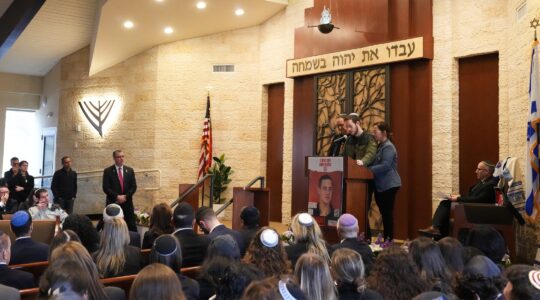ST. PETERSBURG, Feb. 4 (JTA) — Jewish leaders are voicing appreciation for a conference that was viewed by many here as the first step since the fall of communism toward establishing ties between Jews and the Russian Orthodox Church. Interfaith dialogue is especially important at a time when Russian nationalists are pushing for a return to the Orthodox Christian values of czarist Russia to fill the ideological void left by the collapse of communism. A clarification of what Judaism stands for is also important, given the traditional anti-Semitism of some of the Orthodox Church’s clergy. Dozens of Jewish leaders, church officials and Russian and foreign intellectuals attended the academic conference, held here last week with the goal of acquainting the Russian church with Judaism. The meeting, organized by the St. Petersburg School of Religion and Philosophy in cooperation with a number of local and international institutions, also sought to familiarize Western Christians and Jews with the difficulties faced by the Orthodox Church during the Communist era. Among those supporting the conference was Metropolitan Vladimir of St. Petersburg, a leading figure in the hierarchy of the Orthodox Church, to which most Russians belong. The Jewish community was pleased that Christian groups had taken the initiative to hold the conference. St. Petersburg Chief Rabbi Menachem Mendel Pevzner, who described Jewish relations with the Russian Orthodox Church as “very formal,” said the conference was an encouraging start. “We should be listening today to what [Orthodox Christians] have to say about us,” he said. But some Jewish leaders said that interfaith dialogue in Russia still has a long way to go. “The Russian church, unlike Christian churches in the West, has not yet expressed its stand on Jews and Judaism, nor its understanding of the importance of such dialogue,” said Ilya Dvorkin, head of the St. Petersburg Jewish University. He referred to the opening session of the conference, during which an Orthodox priest held a Christian prayer service. “I think it was a slap in the face of the rabbi and religious Jews who attended the conference,” Dvorkin said.
JTA has documented Jewish history in real-time for over a century. Keep our journalism strong by joining us in supporting independent, award-winning reporting.





